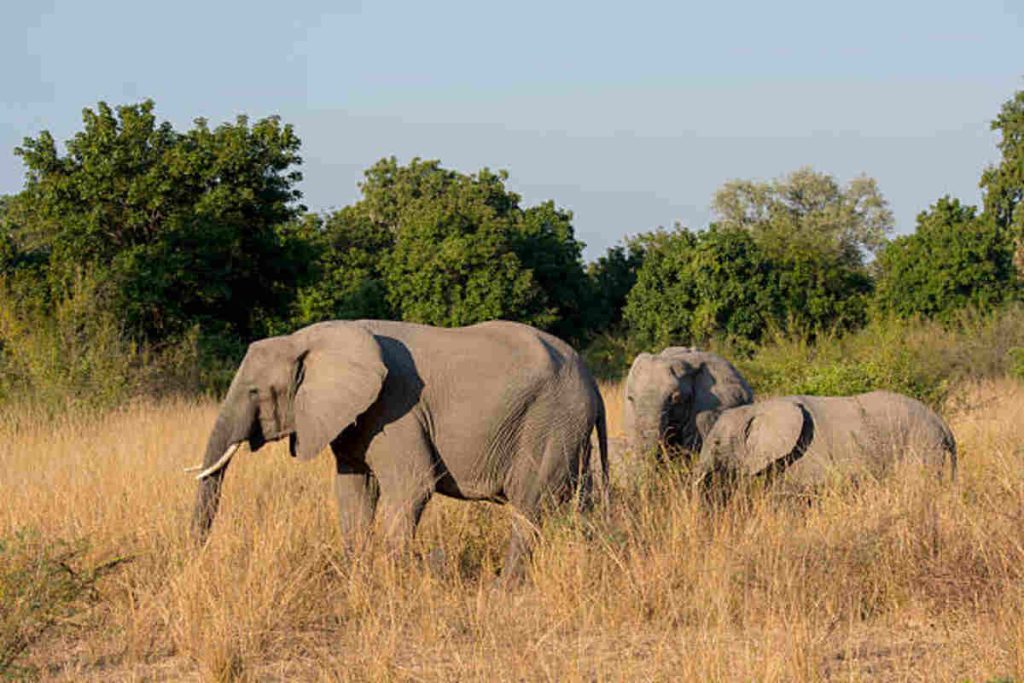
Wildlife attacks surge as displaced elephants and hippos roam Nigerian communities after environmental disruptions.Wolfgang Kaehler/Getty Images
The Ogun State Commissioner for Forestry, Taiwo Oludotun, confirmed the fatal encounter on Tuesday, stating that government officials had been notified and were heading to the scene to assess the situation.
Although elephant movements through the area are not uncommon, such deadly interactions remain rare, raising concerns over public safety in forest-edge communities.
Wildlife Attack Sparks Fears of Rising Animal-Human Conflict
The elephant’s appearance outside its forest range has raised alarms about increasingly frequent human-wildlife conflict across parts of Nigeria. The incident follows closely on the heels of a deadly hippopotamus attack in Banjiram, a community in Guyuk Local Government Area of Adamawa State.
According to Shalom Kassa, the Chairman of Guyuk LGA, the hippo was displaced by flooding near the Kiri Dam and began roaming between farms and residential zones, eventually attacking and killing one resident.
Kassa said the animal has also been damaging crops and endangering livestock. Residents are alarmed but legally restricted from harming the hippo, which is a protected species under Nigerian environmental law.
Environmental Pressures Driving Wildlife Closer to Communities
Conservation experts believe that climate-related changes—including rising floodwaters, habitat encroachment, and deforestation—are pushing wildlife closer to human populations.
Elephants and hippos, both known for their territorial behaviors, have become increasingly visible in rural communities as their ecosystems shrink.
“This is a serious threat to human lives and means of livelihoods,” Kassa told reporters, warning that continued inaction could lead to more casualties.
He urged the Ministry of Environment and relevant agencies to respond swiftly to contain the threat posed by the displaced wildlife.
Legal Protections Limit Community Response
One of the key challenges in addressing such incidents is Nigeria’s legal protection for wildlife. Under the National Parks Service Act, elephants and hippos are considered protected species, meaning communities cannot take lethal action even in life-threatening situations.
There are growing calls for a government-led wildlife response strategy in which community leaders have argued that the current laws leave them vulnerable, especially in rural areas with limited access to emergency services or wildlife control resources.
Authorities Urged to Improve Wildlife Management Systems
Ogun State forestry officials said they are assessing the Imobi incident to determine how the elephant breached its reserve boundary. They also plan to review monitoring systems and preventive measures.
Meanwhile, the state’s environmental analysts emphasized the need for a national framework that includes early-warning mechanisms and coordinated wildlife relocation protocols.
Also Read: N905bn profit recorded by NNPC as output climbs to 1.68mbpd
A recent report from Nigeria’s environmental regulator highlights the urgent need for proactive wildlife and habitat management, particularly as seasonal flooding continues to displace large animal populations.

